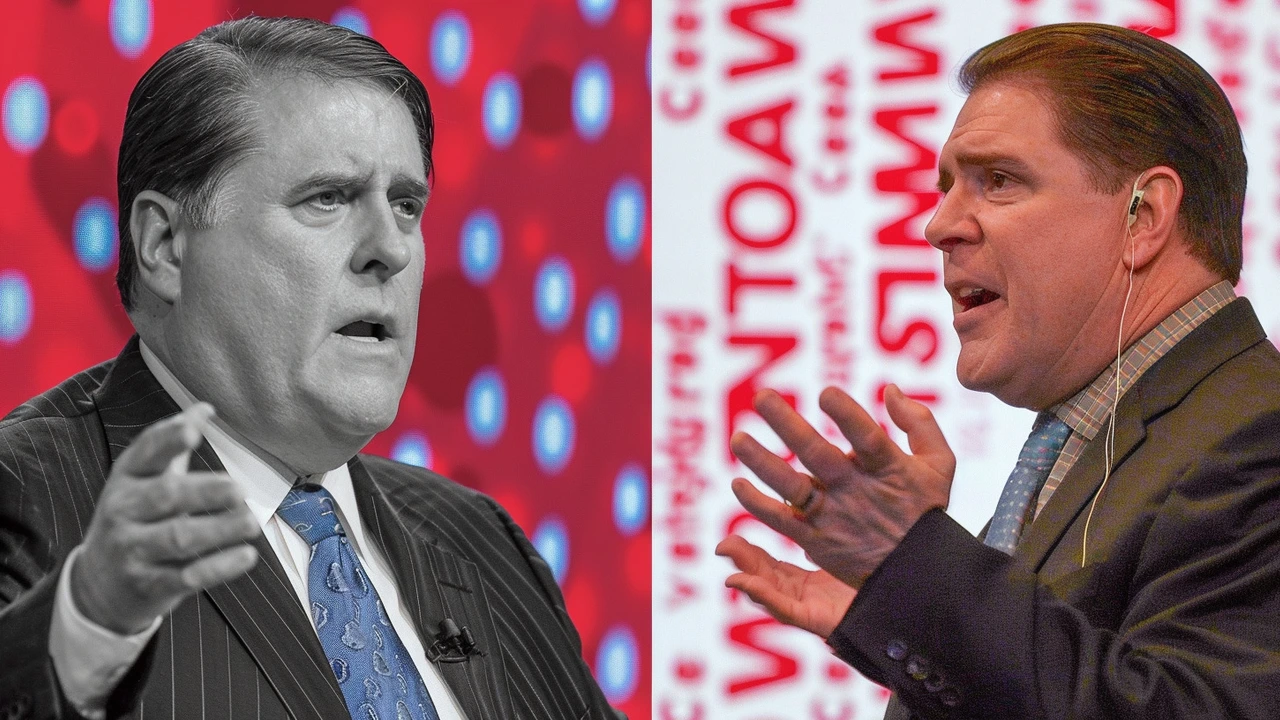Trump Guilty Verdict Sparks Heated Debate Among CNN Conservative Commentators
This morning, CNN's 'CNN This Morning' hosted a riveting discussion that echoed across political and media landscapes. The debate between George Conway, a vocal critic of Donald Trump, and Scott Jennings, a conservative political commentator, centered on the recent guilty verdict delivered against the former President in relation to his criminal hush money case. The air was thick with anticipation as they delved into the myriad implications this verdict could hold for Trump and the broader political arena.
George Conway did not mince words in highlighting the gravity of the verdict. He labeled it as a monumental moment, remarking that a former President being found guilty in a criminal court sends shockwaves through the very foundation of American democracy. Conway predicted that the effects of this verdict would ripple through Trump's political future and finances, creating an unprecedented spectacle that would captivate the nation. His analysis painted a picture of profound change, suggesting that this judgment could serve as a turning point in American political history.
In contrast, Scott Jennings approached the situation with a measured response. While he acknowledged the seriousness of the verdict handed down by the court, Jennings stressed the importance of caution. His argument hinged on the salient fact that this verdict did not yet amount to a conviction, as Trump retains the legal right to appeal the decision. Jennings advised the audience and his fellow commentators to avoid jumping to conclusions, emphasizing patience and the need for a thorough examination of the judicial process.
The Role of the Manhattan District Attorney's Office
Both commentators took time to analyze the role played by the Manhattan District Attorney's office in this high-profile case. Conway credited the DA's office with displaying tenacity and resilience in bringing the case to court, underscoring the painstaking investigative work that led to this landmark verdict. He pointed out that the office had navigated myriad legal and political hurdles, showcasing the strength and independence of the American judicial system.
Jennings, while not dismissing the DA's diligence, cautioned against perceiving the office's actions as entirely devoid of political influence. He argued that the high-profile nature of the case could have motivated certain prosecutorial decisions, suggesting that the DA's office might have felt pressured to deliver a particular outcome. This, he cautioned, complicated the narrative and called for a closer inspection of the surrounding context and motivations.
Impact on the Republican Party
Another point of consensus between Conway and Jennings was the potential impact this verdict could have on the Republican Party. Conway suggested that the party might find itself at a crossroads, forced to re-evaluate its ties to Trump amid growing legal issues and political controversies. He speculated that the GOP could face internal pressures to distance itself from Trump in order to preserve its broader electoral prospects.
Jennings echoed this sentiment but framed it within the broader context of the party's internal dynamics. He noted that while the verdict might pressure some segments of the Republican establishment to reconsider their allegiance to Trump, others might double down in their support, viewing the legal challenges as politically motivated attacks. This, he contended, could lead to a period of intense introspection and debate within the party, influencing its direction for years to come.
Broader Implications for American Democracy
In perhaps the most profound segment of their discussion, Conway and Jennings explored the broader implications of the verdict for American democracy. Conway described the verdict as a 'watershed moment' with 'far-reaching consequences,' emphasizing that it symbolizes a critical juncture in the nation's political trajectory. He argued that holding a former President accountable in a court of law underscores the rule of law and the principle that no one, regardless of their position, is above the law. This, he posited, reinforces the integrity of democratic institutions and the accountability mechanisms inherent within them.
Jennings, while agreeing with the historic nature of the verdict, urged the public and political commentators alike to approach it with a sense of perspective. He warned against viewing the verdict in isolation, advocating for a holistic understanding of its implications. Jennings stressed the need for ongoing vigilance in upholding democratic principles and warned that the ultimate impact of the verdict would only be clear with the passage of time and subsequent legal developments.

A Significant Moment in American Political History
The discussion between George Conway and Scott Jennings on 'CNN This Morning' offered a multifaceted analysis of Donald Trump's guilty verdict and its potential impact. Conway's emphatic stance on the verdict's gravity was counterbalanced by Jennings' call for caution and patience. Together, they highlighted the complexity and significance of the moment, underscoring its historical importance.
As the nation watches the legal proceedings and their political ramifications unfold, one thing remains certain: this verdict marks a pivotal chapter in American political history. The case serves as a profound reminder of the ongoing interplay between law, politics, and the democratic ideals that underpin the nation's governance. Whether the verdict leads to a conviction or is overturned on appeal, it has already left an indelible mark on the political landscape, sparking debates and discussions that will likely continue for months and years to come.
For the American public and political analysts alike, the discussions on 'CNN This Morning' provide valuable insights into the multifaceted nature of this landmark case. The divergent perspectives offered by Conway and Jennings reflect the broader societal debate surrounding Trump's presidency and legal challenges, encapsulating the dynamic and often contentious nature of American democracy.
